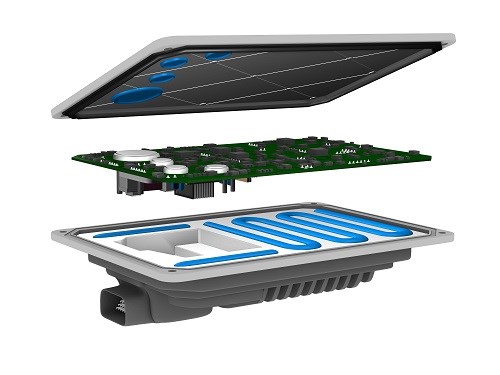"Game-Changing" Adhesive Nominated for Prestigious R&D Award
Dow Corning's unique silicone adhesive significantly expands design options for automotive electronics.

A “game-changing” adhesive from Dow Corning, Midland, Mich., has been nominated for a prestigious R&D 100 award in two categories: Market Disruption and Mechanical Devices/Materials.
The 53-yr-old R&D Awards tradition recognizes the latest and most revolutionary technologies introduced to the market each year. They recognize advances in testing equipment, chemistry, biomedical products, consumer items, high-energy physics and, in Dow Corning’s case—cutting-edge new materials. R&D Magazine will announce the winners at the 2015 R&D Awards and Technology Conference, November 12-13 in Las Vegas.
Launched in April at the SAE 2015 World Congress, Dow Corning EA-7100 Adhesive is reportedly based on a radical new silicone chemistry that can considerably expand design options for automotive electronics. Dow Corning says its patented chemistry offers significantly broader latitudes when designing next-generation control units, sensors, lighting and display modules targeting today’s increasingly demanding automotive underhood and other applications.
This adhesive forms strong bonds to metals, ceramics, glass and laminates, as well as many plastics that have typically presented challenges for conventional silicones, such as PE, PC and LCP. Depending on the application, the material can often bond to these substrates without requiring pre-treatment or cleaning. This unique property, along with the material’s low voiding and robust adhesion, despite surface contamination, enables automotive electronics manufacturers to design components using an expanded range of more cost-effective materials.
EA-7100 adhesive also boasts up to 50 percent faster cure time than conventional heat-cure platinum catalyzed silicone adhesive systems. For example, in a typical lid seal design, a standard one-part addition-cure adhesive generally takes 60 minutes to cure at 125˚C. By contrast, the new adhesive has been shown to achieve full cure within 15 minutes at 100˚C. In select applications, cohesive adhesion may be complete within three minutes. As a result, the company anticipates that its new one-part, heat-cure adhesive may greatly accelerate processing, reduce energy use and material costs.
Want to find or compare materials data for different resins, grades, or suppliers? Check out Plastics Technology’s Plaspec Global materials database.
Related Content
-
SPE Automotive Awards Applaud ‘Firsts’ and Emerging Technologies
The 51st annual SPE Automotive Innovation awards gave nods to several ‘firsts’ and added alternative vehicle systems category.
-
Honda Now Exploring UBQ’s Biobased Material Made from Unsorted Household Waste
UBQ is aiming to expand its reach for more sustainable automotive parts as well as non-automotive applications.
-
Molder Repairs Platen Holes with Threaded Inserts
Automotive molder ITW Deltar Fasteners found new life for the battered bolt holes on its machine platens with a solution that’s designed to last.















